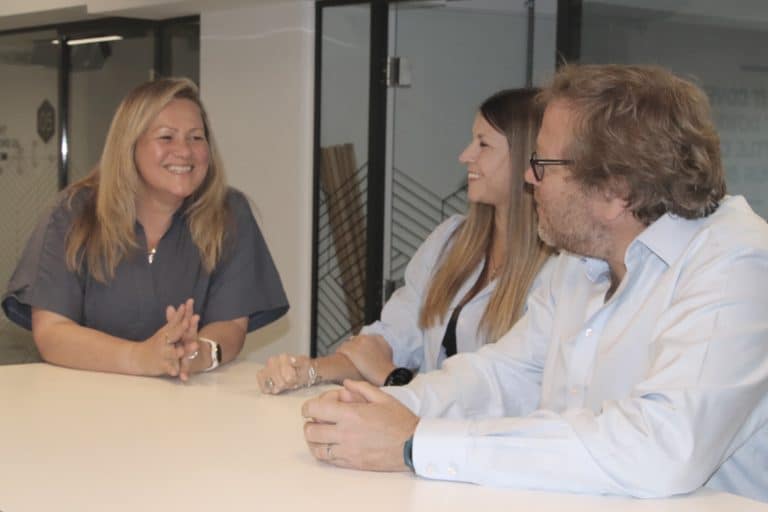If you’ve ever felt the buzz, and the chaos of growing a startup, you know how quickly things can change. One moment, your close-knit team is swapping ideas over coffee; the next, you’re onboarding new hires, fielding investor questions, and trying to maintain that elusive “startup energy.” On one hand, It’s exhilarating, but on the other, rapid growth can also strain your startup culture and company ‘s resilience in ways you never expected. I’ve seen founders wrestle with this firsthand. The fear? Losing the very culture that made their business special (and successful) in the first place.
But here’s the thing: culture isn’t just some fluffy HR concept. It’s the real-world driver behind your ability to weather uncertainty, bring in top talent, and achieve sustainable growth. As Itzik Cohen, Co-Founder & CEO of PayZen which scaled from zero to over $250M in revenue, puts it, “Building a high-performance culture in a start-up isn’t just a leadership buzzword – it’s the foundation for scaling and sustained success”. That statement really resonates. It’s a reminder that, especially in times of uncertainty, leaders have the power and the responsibility to make culture a strategic priority.
So, how do you keep the energy of a startup while building a resilient culture for growth in uncertain times? That’s the challenge we’re tackling in the below sequence of quick tips for busy business owners – taking an unvarnished look at how to embed a resilient culture for growth when nothing feels certain.
Part 1: Consciously prioritise culture, make it a strategic priority
I can’t count the number of times I’ve worked with teams who admitted, a bit sheepishly, “We wish we’d started thinking about culture sooner” or “we assumed that people just instinctively knew”. It’s a common thread: Many founders dismiss culture as intangible or hard to define, sidelining it until issues crop up. But the reality is that culture is a measurable asset, a living, breathing force that shapes every aspect of your business.
And it’s not just a one-off exercise. As your business scales, old ways of working stop being effective. Rapid growth often creates cultural strains: communication gets harder and needs a more formal structure, as well as a regular cadence. Decision-making and approvals require more transparency and must be documented to drive consistency. In short, what worked at the startup stage may no longer be effective as the company scales. The first step is simple but crucial: make culture a priority. It’s surprising how many businesses still don’t consider their culture as an adaptable, malleable ‘thing’. Or, if it is, it’s considered set in stone yet hard-to-define.
Practical tips:
- Identify the unique hallmarks of your culture – this can be as simple as gathering feedback from your employees, customers and key suppliers;
- Find ways to keep and amplify the positives (the moments that matter) and ensure everyone is clear on what’s expected of them. Reward and recognition initiatives can be a great way to do this – as well as ensuring your policies and processes don’t inadvertently undermine how you want the employee experience to feel;
- Assess ways to reduce the impact of any less helpful cultural attributes and definitely eliminate any toxicity.
Part 2: R(e)setting the cultural pillars
Here’s a question for you: When was the last time you paused to reflect on your team’s real values? Not just what’s written on the website, but what’s lived, day to day. What your employees and customers experience?
Establishing or revisiting, your purpose, vision, and values as you grow and your strategy evolves is good business practice. These are the foundation blocks of your culture from which the rest of your working practices will be determined; the ‘how’ things get done from behaviours, mindsets to leadership, management and communication styles that are witnessed every day.
It’s not about perfection or the “right” way of doing things – it’s about the way that you and your people need to do things to bring your strategy, brand and desired people experience to life.
It’s essential to embed these foundation blocks of your culture into every stage of the employee lifecycle to create the link to people experience from the moment someone is a potential candidate, through their employee journey, right through to their exit interview- this positive culture needs to be experienced. But it’s not just about the people experience, the defined culture also needs to be embedded into policies, processes, governance, systems and ways of working, including customer experience and partner/supplier relationships.
Practical tips:
- Create or revisit your existing, purpose, vision, and values (can be called principles/tenets etc) – to ensure they are fit for purpose for where your business is today, and the business strategy that you have outlined.
- Bake your purpose, vision and values into every stage of the employee lifecycle inc. your EVP your talent attraction strategy and collateral (job adverts, job descriptions, careers pages, LinkedIn presence) and ensure your hiring managers are equipped to bring them to life when recruiting.
- Provide tools for line managers to keep your purpose, vision and values alive in their teams. Standardised meeting agendas and “talking toolkits” help keep culture front of mind. We also have a tech tool to help with this all-important embedding.
- Review policies, processes and ways of working through the lens of values and behaviours – ask yourself, are the existing practices fully reflecting the defined culture?
Part 3: Building Resilience through Operational Excellence
Operational excellence may not grab headlines, but it’s what keeps your business agile and resilient when it matters most. When you streamline processes, optimise resources, and cut unnecessary costs, you create agility, the ability to pivot quickly when markets shift or the unexpected happens. Operational efficiency and adaptability are key for scale-ups to respond to market changes and economic shifts.
I’ve seen leaders turn tough quarters into turning points by being transparent about challenges and involving the team in problem-solving. Disrupting comfort zones by introducing new tools, changing workflows or rethinking roles isn’t always popular, but when handled well, these changes boost team confidence and capability. Operational excellence is about continuous, small improvements that, over time, help your team build trust in your process – even during tough transitions.
Practical Tips:
- Use process mapping to visualise workflows, identify bottlenecks, and streamline to reduce waste and improve efficiency, ensuring your team can respond quickly to market changes as they occur.
- Foster a Culture of Continuous Improvement and Innovation, encouraging everyone from Executives through to frontline staff to suggest small, ongoing improvements. Recognise and reward innovative ideas and incremental wins.
- Empower teams with ownership, giving clear direction on goals but allowing flexibility in how teams achieve them, to build confidence, trust and agility.
- Encourage Experimentation and Learning – by running mini-experiments or pilot projects before enacting large scale changes, safe spaces are created for teams to test new tools, gather feedback and iterate.
- Invest in Training and Upskilling focusing on process improvement methods and adaptive leadership skills.
- Leverage technology by identifying repetitive tasks that can be automated to free up your team for higher-value work.
- Communicate transparently and frequently – hold regular updates or reflection moments after key projects to discuss what worked, what didn’t, and how to improve next time.
Part 4: Formalising the culture
As your business grows, informal systems and spontaneous connections often give way to a greater need for structure and clarity. The ways of working that once felt natural in a small team may not be sustainable as your organization expands. Growth can create cultural shifts: communication gets more complex, new layers of leadership emerge, and decision-making requires more documentation and transparency.
Practical Tips:
- Develop formal onboarding processes that immerse new hires in your company’s values and expectations from day one.
- Create rituals or regular touchpoints (like all-hands meetings or team retrospectives) that reinforce your culture and keep everyone aligned.
- Document your core values and key cultural practices so they remain clear as new people join and teams evolve.
- Encourage feedback from all levels of the organization to identify where cultural gaps may be emerging as you scale.
Part 5: Embedding Culture in Everyday Operations
Sustaining a strong culture isn’t a one-off initiative—it’s an ongoing commitment that must be woven into the fabric of your daily operations. As your company matures, culture should inform not just how you interact, but how you make decisions, hire, promote, and even part ways with team members.
Practical Tips:
- Integrate your core values into performance reviews, hiring criteria, and promotion decisions to ensure alignment at every stage.
- Empower leaders at all levels to model and champion the culture, holding themselves and their teams accountable.
- Celebrate wins—big and small—that exemplify your cultural values, reinforcing what matters most.
- Regularly revisit and refresh your cultural initiatives to ensure they remain relevant and impactful as your business and team change.
- By formalising your approach and embedding culture into daily practices, you build resilience for the future and keep your company’s core values alive through every stage of growth.
Part 6: Leadership and Manager Upskilling
As your company scales, the demands on your leadership and management team evolve rapidly. The transition from a small, founder-led startup to a larger, more structured organisation requires leaders and managers to develop new skills and mindsets. Furthermore, when senior leaders don’t lead by example, even the best cultures can begin to unravel, leading to confusion, a lack of direction, and poor motivation. Investing in upskilling ensures your leadership team can drive growth, foster a resilient culture, and empower their teams through change
Practical Tips:
- Prioritise Coaching and Mentoring: Pair new and existing managers with experienced mentors. Coaching helps leaders navigate change, build confidence, and practice giving feedback in a supportive environment.
- Emphasise Soft Skills: Beyond technical expertise, managers need strong communication, problem-solving, and empathy skills.
- Adopt Cohort-Based Learning: Implement training programs where managers learn together, share experiences, and support each other.
- Conduct Leadership Skills Gap Analysis: Regularly assess the current capabilities of your managers against the needs of your growing business.
- Empower with Trust and Autonomy: Build a leadership team that is trusted to make decisions and drive innovation. Provide autonomy while aligning everyone with the company’s vision and values.
- Recognise and Reward Personal Development: Encourage managers to set personal development goals and provide resources for ongoing learning, recognising and rewarding those who exemplify growth, adaptability and continuous development.
- Foster Resilience, Adaptive Leadership and Wellbeing: Train leaders to recognise and address stressors affecting themselves and their teams. Resilient leadership programs help managers create psychologically safe environments, support employee wellbeing, and build teams that thrive in the face of change
Upskilling your leadership and management team is not just about individual growth—it’s about building a resilient, high-performing organisation ready to meet the challenges of scale.
Part 7: Fostering Strong Team Dynamics
If you want your scaling business to attract the best talent, especially in a competitive market, strong team dynamics are a non-negotiable. Think transparent career paths or development opportunities, trust, and a culture where everyone feels included. Flexible work environments go a long way too – they’re a magnet for top talent.
Practical Tips:
- Consider pulse surveys and/or anonymous feedback tools to regularly gauge engagement levels and identify areas for improvement before issues escalate.
- Review your working practices – can you offer a more flexible work environment? Not purely related to working from home, but also look at how to support people with different needs, home environments, life priorities.
- Listen to your team often – teams thrive when leaders/managers open up the floor to open and honest feedback, even when the news isn’t easy. Open, honest communication builds trust and ensures everyone stays on the same page during rapid change. Create a space for dialogue, surfacing concerns and acting on feedback.
- Encourage a culture of learning (where mistakes are seen as opportunities) – resilience isn’t about always getting it right, it’s about how you recover and growit’s about how you get back up. Implementing post-project retrospectives where teams share lessons learned can foster continuous improvement – and in the world of scale-ups, being able to pivot quickly in response to market shifts and economic certainty is essential.
Ready to untangle your scale-up culture challenges? Book a call with our expert workplace culture consultants for actionable next steps. Let’s make complexity simple, together.





